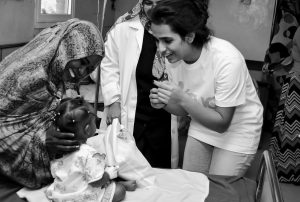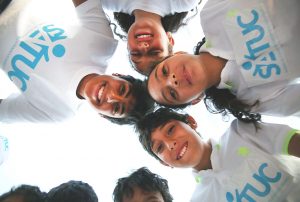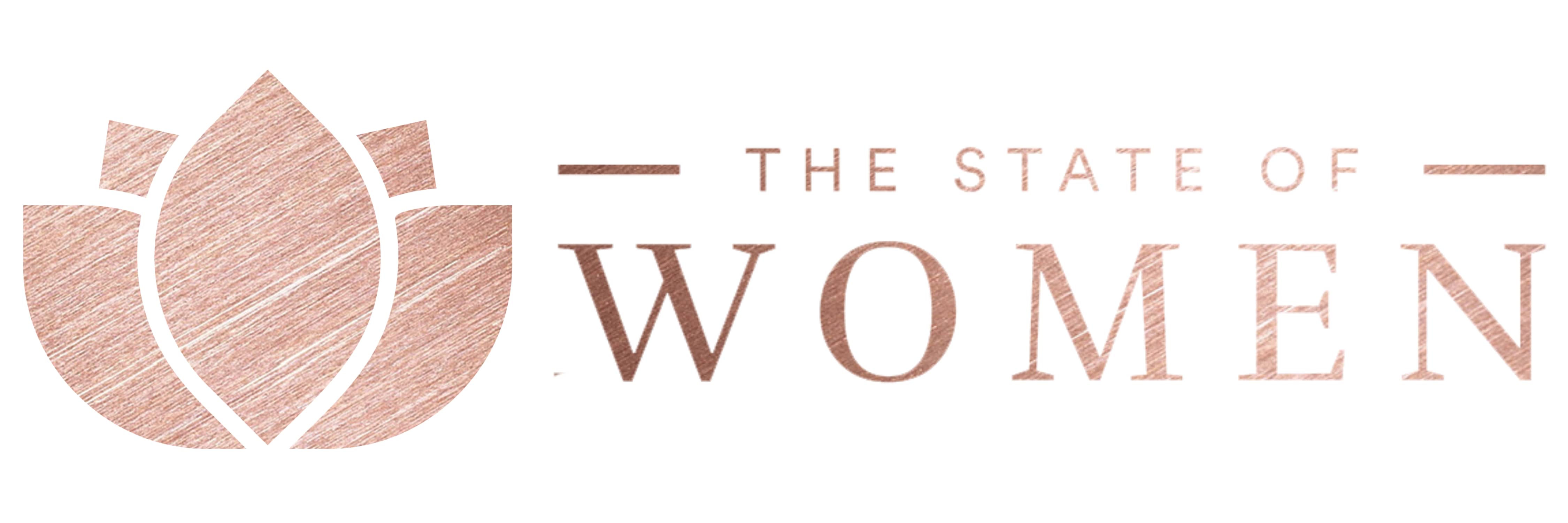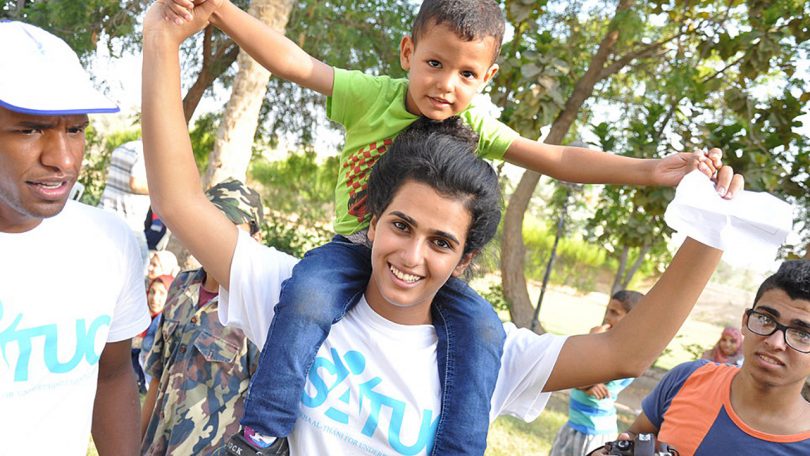Sheikha Sheikha Al-Thani is a princess. She believes everyone has something to smile about, all the time, and some people just need a reminder. She believes in the power of all people.
This could all seem naive, except Sheikha has been there—is almost always there, constantly, on the ground helping people across the world, from her very earliest memories—and she has plans for the future. She thinks the youth will lead the way, and sees it as her mission to help them.
 Sheikha is only 16, but has dedicated her life to humanitarian work since she was 4 years old. Her charity, Sheikha Al-Thani for Underprivileged Children (SATUC), was founded when she was just 13, and works with some of the most disadvantaged children in the world.
Sheikha is only 16, but has dedicated her life to humanitarian work since she was 4 years old. Her charity, Sheikha Al-Thani for Underprivileged Children (SATUC), was founded when she was just 13, and works with some of the most disadvantaged children in the world.
Sheikha is a member of the Qatari royal family, and is also of Egyptian heritage. She has a triple nationality—American, Egyptian and Qatari—and through growing up between Egypt, the United Kingdom and United States, she was exposed to and got to know a wide variety of cultures and challenges people face every day. She currently studies in London.
As she got to know many different cultures and people, Sheikha was shocked by all the unnecessary suffering in the world. She felt driven to help the most vulnerable members of society and to protect those who cannot protect themselves.
One Life at a Time
 She has spent most of her life traveling to some of the most impoverished countries in the world to offer her support and to raise awareness of humanitarian projects. Sheikha’s method is a simple one: Get to know people. Asked in a recent interview for a story that moved her, she recounted meeting a poor, widowed mother of four, who was at a loss ever since her oldest son lost his sight and was unable to work. It turned out a local healer had put oil in the young man’s eyes. Sheikha took him to a nearby hospital, and after medical attention his sight was restored. It’s a small story, she says, but that’s the point: Everyone’s small stories add up to a world full of lives that matter. Listen. Help. Take children to hospitals. Protect women and girls who have been raped. Travel. Listen some more. Reach out; help; share the luxuries you enjoy in your own life.
She has spent most of her life traveling to some of the most impoverished countries in the world to offer her support and to raise awareness of humanitarian projects. Sheikha’s method is a simple one: Get to know people. Asked in a recent interview for a story that moved her, she recounted meeting a poor, widowed mother of four, who was at a loss ever since her oldest son lost his sight and was unable to work. It turned out a local healer had put oil in the young man’s eyes. Sheikha took him to a nearby hospital, and after medical attention his sight was restored. It’s a small story, she says, but that’s the point: Everyone’s small stories add up to a world full of lives that matter. Listen. Help. Take children to hospitals. Protect women and girls who have been raped. Travel. Listen some more. Reach out; help; share the luxuries you enjoy in your own life.
“In the end we’re all human beings; we’re all born the same; we all live and breathe the same; we shouldn’t differentiate ourselves by race, by gender, by nationalities … we should just break the boundaries; we should become united,” she says. She noticed, at a young age, that divisions and lack of empathy caused suffering worldwide.
As she continued to travel, Sheikha soon realized there were many children around the world who faced tremendous difficulty: Children living on the street, struggling with hunger or broken families. Sheikha looked around at the comfort and support she enjoyed in her own life, and decided she wanted to bring those same qualities to children around the world; which led to the founding of her charity.
“I became aware at a very young age that there are a lot of underprivileged children that do not enjoy some of the basic necessities in life,” she said at a SATUC press conference March 25, 2015.
Giving the most to those with the least

SATUC has already supported several grassroots efforts in countries including the Philippines, Sudan, Egypt and the United Kingdom.
From August 29 to September 3, 2015, SATUC hosted a six-a-side association football tournament—the first of its kind—in Cairo, with teams built from disadvantaged children ages 14 to 15 from around the world.
The nature of disadvantaged childhoods varies from country to country. The children who will participate may have been orphaned, suffered a childhood mired in poverty or simply have come from a broken family. At the tournament, none of this will matter for several days. SATUC will give the children a chance to be defined not by the adversities they’ve faced, but buy what they are capable of achieving.
The tournament is an opportunity for the talented chosen children to leave behind whatever challenges they have had to overcome to show their true potential. In addition, Sheikha says, it is a chance for the world to see the children in a different light: not as victims or sufferers, but as remarkable young people who have an extraordinary amount to give.
SATUC plans to continue the tournament biennially, growing larger in the future.
Teams from the Philippines, Morocco, Egypt, Colombia, the United Kingdom, Honduras, Jordan, Algeria and Syria are confirmed. A team of eight boys will be sponsored by a partner charity or organization in each country.
 For now, the teams in the tournament are composed of all boys; Sheikha said most players worldwide are boys and choosing all-boy teams made quickly organizing the first tournament and cementing partnerships for the future possible.
For now, the teams in the tournament are composed of all boys; Sheikha said most players worldwide are boys and choosing all-boy teams made quickly organizing the first tournament and cementing partnerships for the future possible.
“In 2017 there will be girls and boys; that’s a definite,” she says.
The main goal, she says, is to give kids and their families a chance. Tragedy happens worldwide and daily, but to ignore it is simply inexcusable. If you can do something, Sheikha feels, you must.
“(We want) to give the chance to children who don’t have another chance at getting a good education and making a name for themselves, so that they can get themselves out of poverty,” she says. Youth, she feels, should be our priority: They have the power to change the world for generations to come.
She’s certainly a good role model. Along with partners in nine countries, Sheikha is doing just that.



